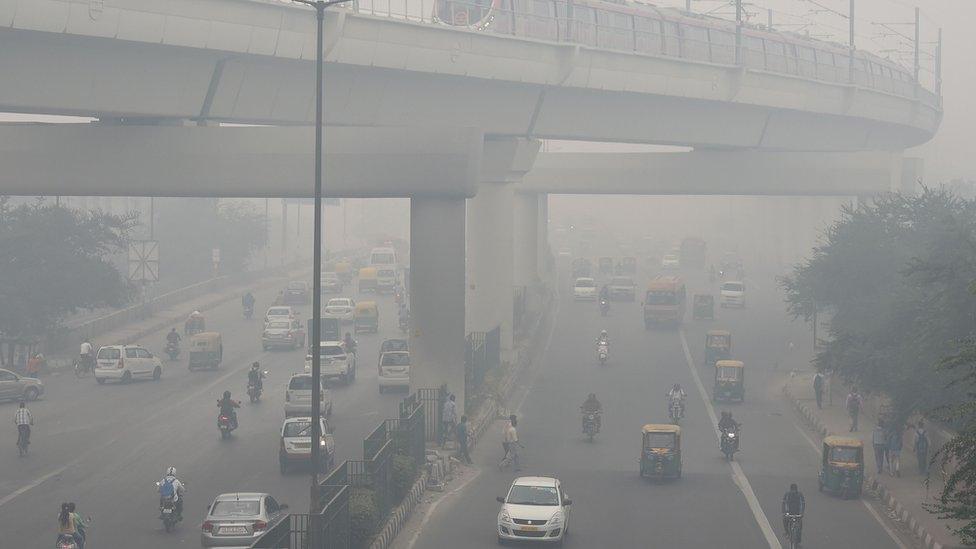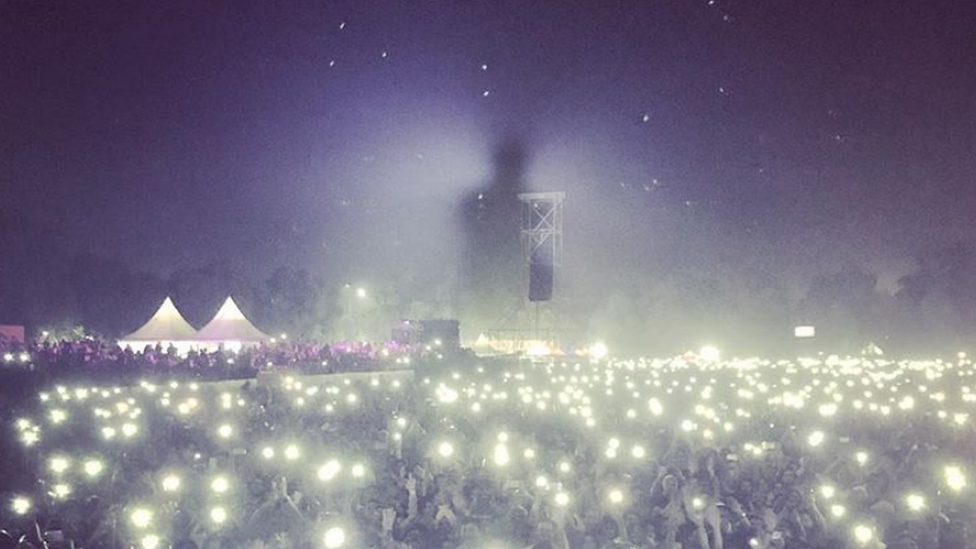Delhi panic over toxic air ahead of Indian festival Diwali
- Published

A thick blanket of smog eclipsed Delhi on Monday
Panic gripped the Indian capital Delhi on Monday as residents woke up to a blanket of thick grey smog ahead of Diwali, the festival of lights.
Visibility is poor as pollution levels reached 20 times the World Health Organisation's recommended limit.
The air quality is expected to worsen in the coming days due to the use of firecrackers, experts have warned.
Indian cities regularly dominate global pollution rankings for the worst air quality.
The Supreme Court has restricted the timeframe for setting off firecrackers to only two hours during the day - but experts believe this curfew will be hard to implement.
Diwali, the most important Hindu festival in north India, celebrates the victory of good over evil.
A hair-raising drive through the Delhi smog in 2017
However in the last few years, celebrations have seen air pollution rise to hazardous levels after many firecrackers were set off.
Many have taken to social media to share their concerns as well as post dramatic photos of the city to show the extent of the problem.

Allow X content?
This article contains content provided by X. We ask for your permission before anything is loaded, as they may be using cookies and other technologies. You may want to read X’s cookie policy, external and privacy policy, external before accepting. To view this content choose ‘accept and continue’.

Allow X content?
This article contains content provided by X. We ask for your permission before anything is loaded, as they may be using cookies and other technologies. You may want to read X’s cookie policy, external and privacy policy, external before accepting. To view this content choose ‘accept and continue’.

Allow X content?
This article contains content provided by X. We ask for your permission before anything is loaded, as they may be using cookies and other technologies. You may want to read X’s cookie policy, external and privacy policy, external before accepting. To view this content choose ‘accept and continue’.

Allow X content?
This article contains content provided by X. We ask for your permission before anything is loaded, as they may be using cookies and other technologies. You may want to read X’s cookie policy, external and privacy policy, external before accepting. To view this content choose ‘accept and continue’.

Allow X content?
This article contains content provided by X. We ask for your permission before anything is loaded, as they may be using cookies and other technologies. You may want to read X’s cookie policy, external and privacy policy, external before accepting. To view this content choose ‘accept and continue’.

On Sunday, the pollution level in the city dipped and was categorised as "poor". But a sharp spike in smog on Monday morning - which recorded a reading of 365 on the Air Quality Index (AQI) - has effectively put the city's air in the "hazardous" category.
Authorities in Delhi have warned residents to stay indoors as much as possible and have started to shut down construction activity in the city.
The Indian capital is the sixth worst place in the world for pollution, according to World Health Organisation (WHO) data.
Air quality in the city worsens every year in November and December as farmers in the neighbouring states of Punjab and Haryana burn crop stubble to clear their fields.
The Graded Response Action Plan (GRAP), an emergency government initiative to try and improve conditions, has also launched around Delhi. It bans activities like rubbish burning to try and improve air quality.
- Published23 October 2018
- Published15 October 2018
